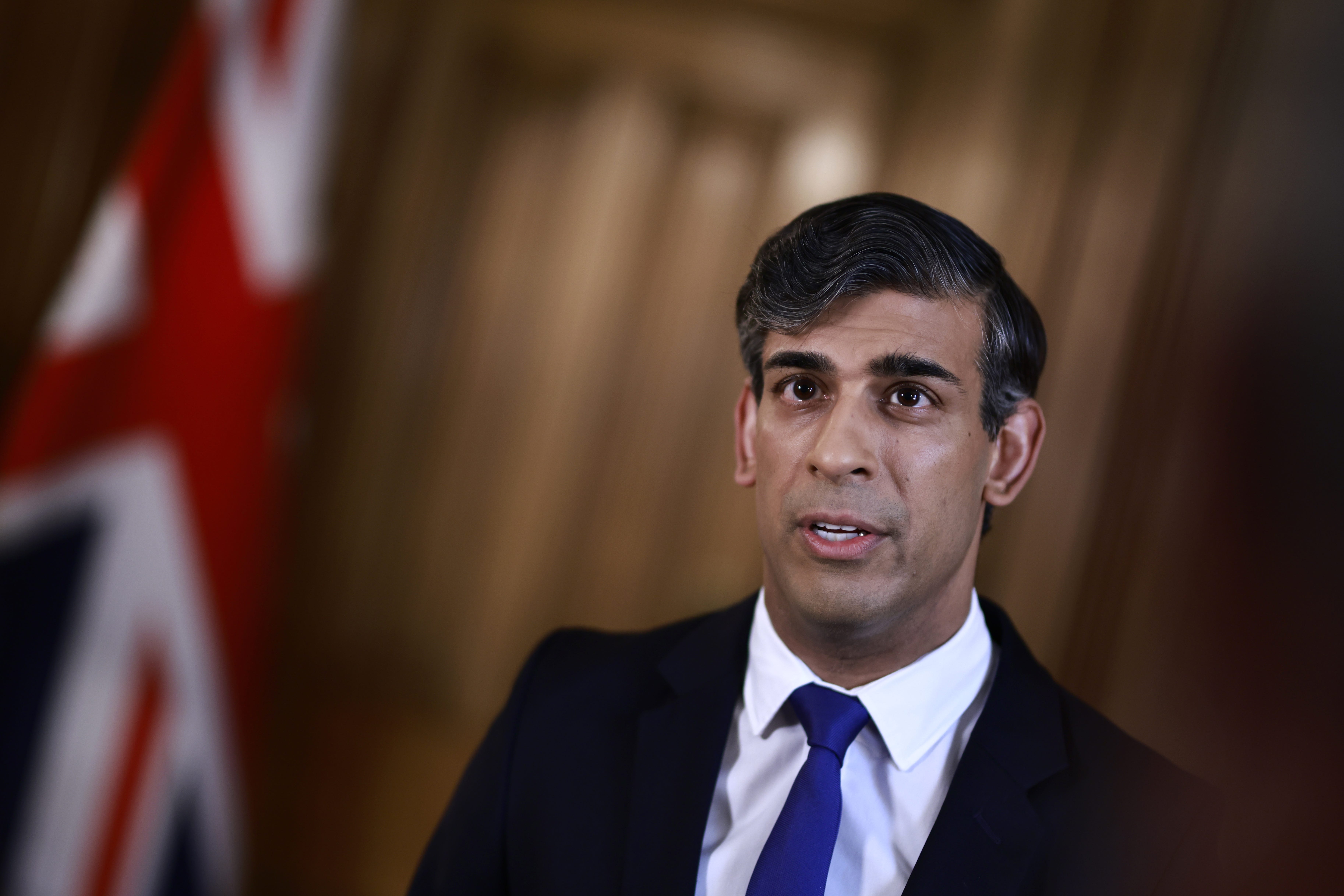Congratulations on the smoking ban, Rishi, but it won’t do you any favours
While the controversial bill will ultimately put the prime minister on the right side of history, in the short term it will cause further divisions in an already fractured party, writes Andrew Grice


I think Rishi Sunak did the right thing for the country by bringing in a bill to raise the legal age for buying tobacco. After winning a second reading in the Commons last night, it is on course to become law this summer, giving the UK the toughest anti-smoking laws in the world.
The prime minister won’t reap any benefit from his legacy policy, even though future generations will. His Commons victory came at a price: advertising that Conservative MPs are split down the middle on the issue, symbolising a party riven by ideological differences.
In another blow to his battered authority, Sunak had to rely on the votes of opposition MPs – which made him look weak and riled his own side. If his own MPs have stopped listening to him, how can he expect voters to? We live in strange times when the opposition whips its MPs to support government legislation while the governing party is not whipped. Labour rubbed salt in Tory wounds; Wes Streeting hailed the measure as a “Labour bill”.
That infuriated Tory right-wingers, validating their opposition to what they see as another example of the “nanny state” introduced by New Labour. They believe Sunak has extended what Margaret Thatcher called the “frontiers of state” when their party should be rolling them back. This question will be a big issue in the next Tory leadership election.
For many Tories, the “right” to smoke is a libertarian argument. So is equality under the law, which is undermined by Sunak’s proposal to raise the age at which cigarettes can be bought legally by one year every year, so that eventually a 31-year-old will be able to buy cigarettes while a 30-year-old will not. Such flaws were well documented in The Independent’s editorial.
But, given that the great majority of smokers wish they had never taken up the habit, for me the downsides were outweighed by the case for freedom from addiction to nicotine. As Chris Whitty, England’s chief medical officer, put it: “This is a product which is designed to take your choice away from you.”
Sunak offered his MPs a free vote in an attempt to dilute the impact of the Tory rebellion, but his ploy didn’t work. It allowed six ministers, including Kemi Badenoch and her close allies, to oppose the bill. The semi-detached business secretary didn’t even show Sunak the respect of supporting his flagship policy, which she would doubtless have done if the vote had been whipped.
Penny Mordaunt, the Commons leader, abstained and her allies had a pop at Badenoch for posturing. The pair clashed over trans rights during the 2022 Tory leadership election. Priti Patel also abstained. The decisions of all three show they are already preoccupied by the next Tory contest. Badenoch sent a signal to the libertarian right while Mordaunt and Patel (who is likely to get Boris Johnson’s backing if she runs) nodded to One Nation Conservatives, knowing any candidate would have to appeal to both factions. Suella Braverman and Robert Jenrick, both potential right-wing standard-bearers, opposed the bill.
Some right-wingers grumbled privately that the “unconservative” measure illustrated “Sunak’s identity crisis”, recalling his various attempts to be the “changemaker” and the “stability candidate”. Yet the Tory party as a whole has an identity crisis. One reason for its success – it has been in power for well over half of the last 100 years – is that, despite its name, it has been pragmatic enough to reinvent itself to reflect changing times. This has required strong leadership to overcome the “small c” conservative instincts of party members – notably when David Cameron legislated for gay marriage. Who’s against that now?
Cameron’s legacy measure shows he was on the right side of history. Sunak’s smoking ban will be viewed in the same way, eventually. Yet many of his MPs are not interested in his legacy – or, remarkably, even that of their party after 14 years in power.
When Sunak announced his smoking plan last October, many Tories still believed their party could avoid a general election drubbing. Few think that now, and it shows every day – not least in the beauty contest already underway, which matters more to too many of them than the general election.
The Tories are looking inwards. Although the public, including Tory voters, support Sunak’s smoking ban, a majority of Tory grassroots members oppose it. Would-be Tory leaders are playing to the party gallery. It is precisely what Labour did under Jeremy Corbyn before Keir Starmer dragged his party to a position where it now looks outwards to voters. Little wonder Labour is 20 points ahead in the opinion polls, and on course for victory in the election that really matters the most.
Join our commenting forum
Join thought-provoking conversations, follow other Independent readers and see their replies
Comments
Bookmark popover
Removed from bookmarks